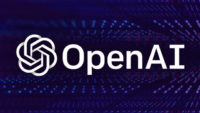Legal Questions Loom as OpenAI Widens Access to DALL-E
July 26, 2022
OpenAI is expanding its beta outreach for DALL-E 2 by inviting an additional one million waitlisted people to join the AI imaging platform over the coming weeks. DALL-E users will receive 50 credits during their first month of use and 15 credits every subsequent month, with each credit redeemable for an original DALL-E-prompted generation (returning four images) or an edit or variation prompt (which returns three images). Additional credits may be purchased in 115-generation increments for $15. Starting this month, users get rights to commercialize their DALL-E images. However, the move highlights the legal implications of AI and possible copyright infringement.
“Users have told us that they are planning to use DALL-E images for commercial projects, like illustrations for children’s books, art for newsletters, concept art and characters for games, moodboards for design consulting, and storyboards for movies,” OpenAI wrote in a blog post announcing the new phase of testing for DALL-E 2, the artificial intelligence app rolled out in April to create and edit images based on written descriptions of the desired result.

DALL-E 2 recently crossed the 100,000-user threshold, TechCrunch reports, explaining that the broader access was facilitated “by new approaches to mitigate bias and toxicity in DALL-E 2’s generations, as well as evolutions in policy governing images created by the system.”
For instance, the company has adapted DALL-E 2 “to generate images of people that ‘more accurately reflect the diversity of the world’s population” when given a prompt describing a person with an unspecified race or gender,’” TechCrunch writes.
Regarding the move to allow DALL-E users to commercialize the AI-generated images — part of OpenAI’s strategy to monetize the technology — TechCrunch says “it raises questions about the legal implications of AI like DALL-E 2, trained on public images around the web, and their potential to infringe on existing copyrights.” DALL-E 2 was “trained” on roughly 650 million images found on the Internet, drawing on text descriptions to form context and understand the relationships between images and words that describe them.
“OpenAI will evaluate different approaches to handle potential copyright and trademark issues, which may include allowing such generations as part of ‘fair use’ or similar concepts, filtering specific types of content, and working directly with copyright [and] trademark owners on these issues,” OpenAI said prior to DALL-E 2’s broader beta push, writes TechCrunch.
Other open-source AI apps face the same problem. Pixelz.ai, which launched an image-generating app that uses a custom DALL-E model, “makes it trivially easy to create photos showing various Pokémon and Disney characters from movies like ‘Guardians of the Galaxy’ and ‘Frozen,’” leaving it up to users to deal with IP and copyright issues responsibly, explains TechCrunch. Many feel they can leverage the legal provision known as “fair use.”

No Comments Yet
You can be the first to comment!
Sorry, comments for this entry are closed at this time.